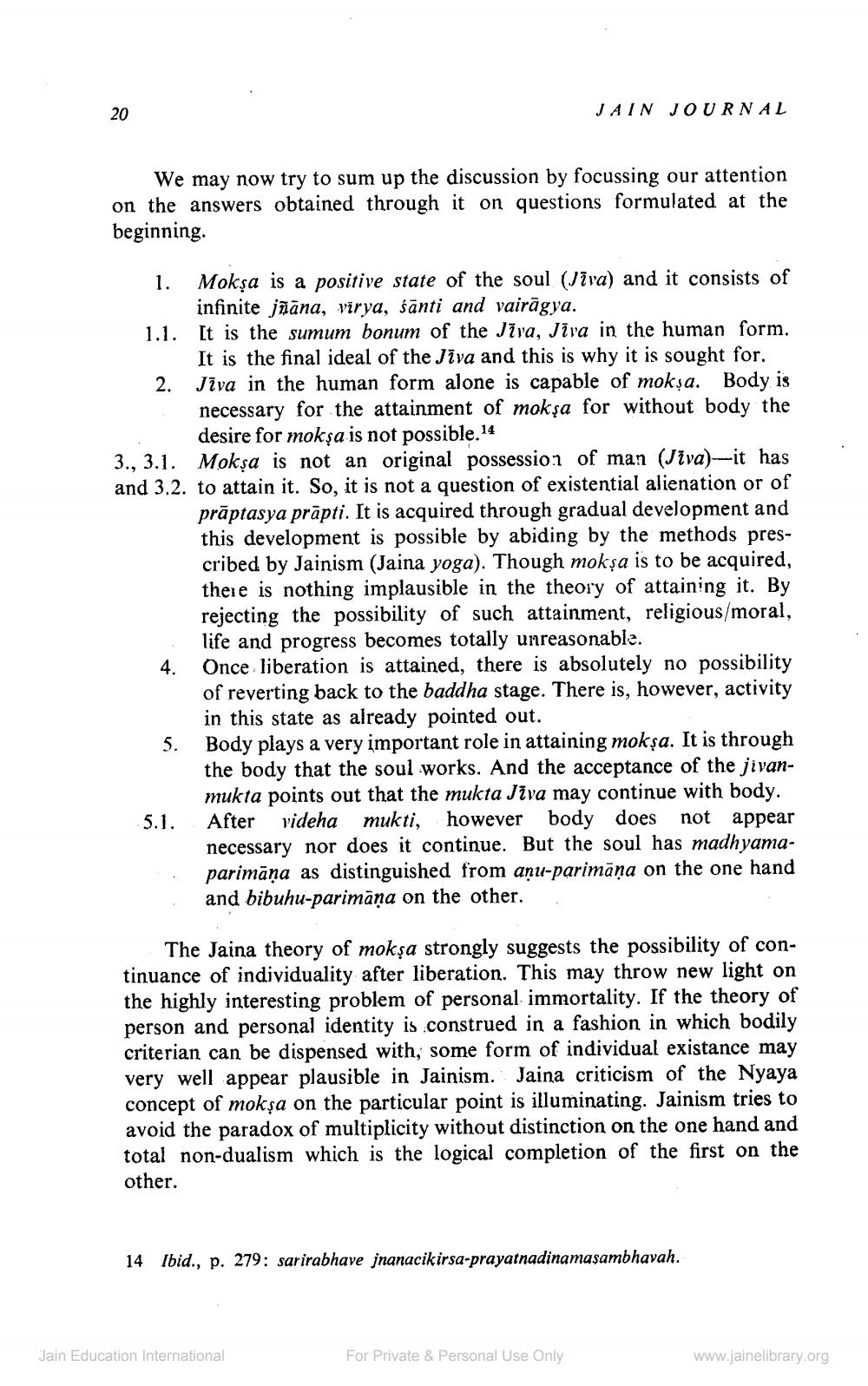________________
20
We may now try to sum up the discussion by focussing our attention on the answers obtained through it on questions formulated at the beginning.
1.
Mokṣa is a positive state of the soul (Jiva) and it consists of infinite jñāna, virya, santi and vairāgya.
1.1. It is the sumum bonum of the Jiva, Jiva in the human form. It is the final ideal of the Jiva and this is why it is sought for. Jiva in the human form alone is capable of mokṣa. Body is necessary for the attainment of mokşa for without body the desire for mokşa is not possible.114
2.
3., 3.1. Mokşa is not an original possession of man (Jiva)-it has and 3.2. to attain it. So, it is not a question of existential alienation or of prāptasya prapti. It is acquired through gradual development and this development is possible by abiding by the methods prescribed by Jainism (Jaina yoga). Though moksa is to be acquired, there is nothing implausible in the theory of attaining it. By rejecting the possibility of such attainment, religious/moral, life and progress becomes totally unreasonable.
Once liberation is attained, there is absolutely no possibility of reverting back to the baddha stage. There is, however, activity in this state as already pointed out.
4.
5.
JAIN JOURNAL
5.1.
Body plays a very important role in attaining mokṣa. It is through the body that the soul works. And the acceptance of the jivanmukta points out that the mukta Jiva may continue with body. After videha mukti, however body does not appear necessary nor does it continue. But the soul has madhyamaparimāṇa as distinguished from aṇu-parimana on the one hand and bibuhu-parimana on the other.
The Jaina theory of mokşa strongly suggests the possibility of continuance of individuality after liberation. This may throw new light on the highly interesting problem of personal immortality. If the theory of person and personal identity is construed in a fashion in which bodily criterian can be dispensed with, some form of individual existance may very well appear plausible in Jainism. Jaina criticism of the Nyaya concept of moksa on the particular point is illuminating. Jainism tries to avoid the paradox of multiplicity without distinction on the one hand and total non-dualism which is the logical completion of the first on the other.
14 Ibid., p. 279: sarirabhave jnanacikirsa-prayatnadinamasambhavah.
Jain Education International
For Private & Personal Use Only
www.jainelibrary.org




